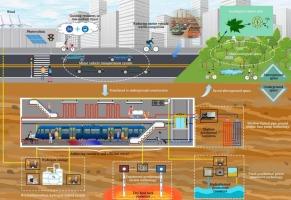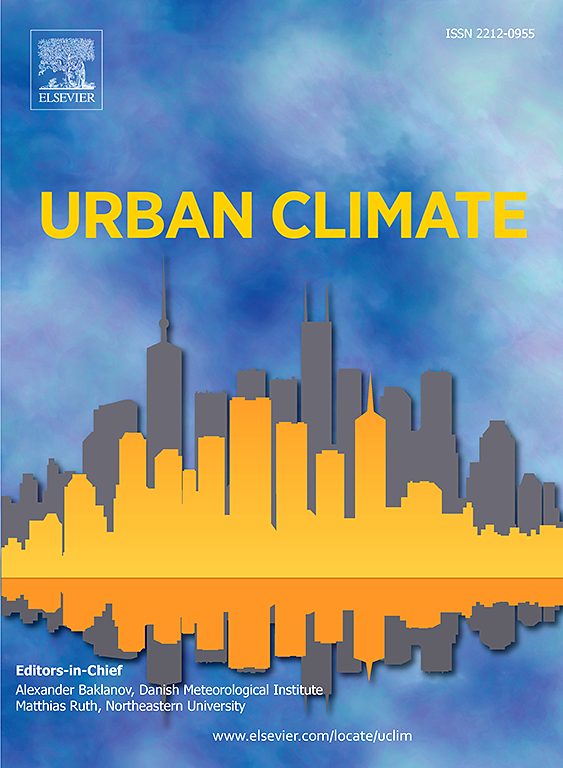地铁与低碳城市研究综述:文献计量分析、地铁脱碳与研究展望
IF 6.9
2区 工程技术
Q1 ENVIRONMENTAL SCIENCES
引用次数: 0
摘要
地铁利用城市地下空间将地面交通转移到地下,在低碳城市建设中具有不可替代的作用。然而,现有研究缺乏对地铁对低碳城市贡献的系统分析和地铁脱碳策略的研究。本研究对地铁与低碳城市的研究领域进行了文献综述,研究重点是通过文献计量学对地铁与低碳城市的研究领域现状进行分析。首先,通过文献计量学对1985 - 2024年地铁与低碳城市研究领域的出版物进行可视化分析。然后在回顾研究的基础上,从低碳城市的碳源减排、低碳城市的生态碳汇、地铁自身的零碳运营三个方面探讨地铁脱碳对低碳城市的贡献。最后,本研究讨论了地铁与低碳城市研究领域目前的研究局限和未来的研究方向。结果表明,地铁通过将地面交通集中在地下,节约地上生态空间,同时通过地热能和风能-光伏-氢混合动力系统有效减少二氧化碳排放,将对低碳地下城市做出重大贡献。本文章由计算机程序翻译,如有差异,请以英文原文为准。

A systematic review of metro and low-carbon city: Bibliometric analysis, metro decarbonization and research prospects
The metro has an irreplaceable role in the construction of low-carbon cities by utilizing urban underground space to transfer surface transportation underground. However, existing research lacks systematic analysis of the metro's contribution to low-carbon cities and research on decarbonization strategies for the metro. This study conducts a literature review on the research field of metro and low-carbon city, with the research focus lying in analyzing the current research field of metro and low-carbon city through bibliometrics. First, this study visualizes and analyzes publications in the research field of metro and low-carbon city from 1985 to 2024 through bibliometrics. Then based on the review study of this field, the contribution of metro decarbonization to low-carbon cities is explored from three aspects: carbon source reduction in low-carbon cities, ecological carbon sinks in low-carbon cities, and zero-carbon operation of the metro itself. Finally, this study discusses the current research limitations and future research directions in the metro and low-carbon city research field. The results indicate that the metro will significantly contribute to low-carbon underground cities by concentrating surface transportation underground and conserving aboveground ecological space, while also effectively reducing CO2 emissions through geothermal energy and the wind-photovoltaic‑hydrogen hybrid system.
求助全文
通过发布文献求助,成功后即可免费获取论文全文。
去求助
来源期刊

Urban Climate
Social Sciences-Urban Studies
CiteScore
9.70
自引率
9.40%
发文量
286
期刊介绍:
Urban Climate serves the scientific and decision making communities with the publication of research on theory, science and applications relevant to understanding urban climatic conditions and change in relation to their geography and to demographic, socioeconomic, institutional, technological and environmental dynamics and global change. Targeted towards both disciplinary and interdisciplinary audiences, this journal publishes original research papers, comprehensive review articles, book reviews, and short communications on topics including, but not limited to, the following:
Urban meteorology and climate[...]
Urban environmental pollution[...]
Adaptation to global change[...]
Urban economic and social issues[...]
Research Approaches[...]
 求助内容:
求助内容: 应助结果提醒方式:
应助结果提醒方式:


